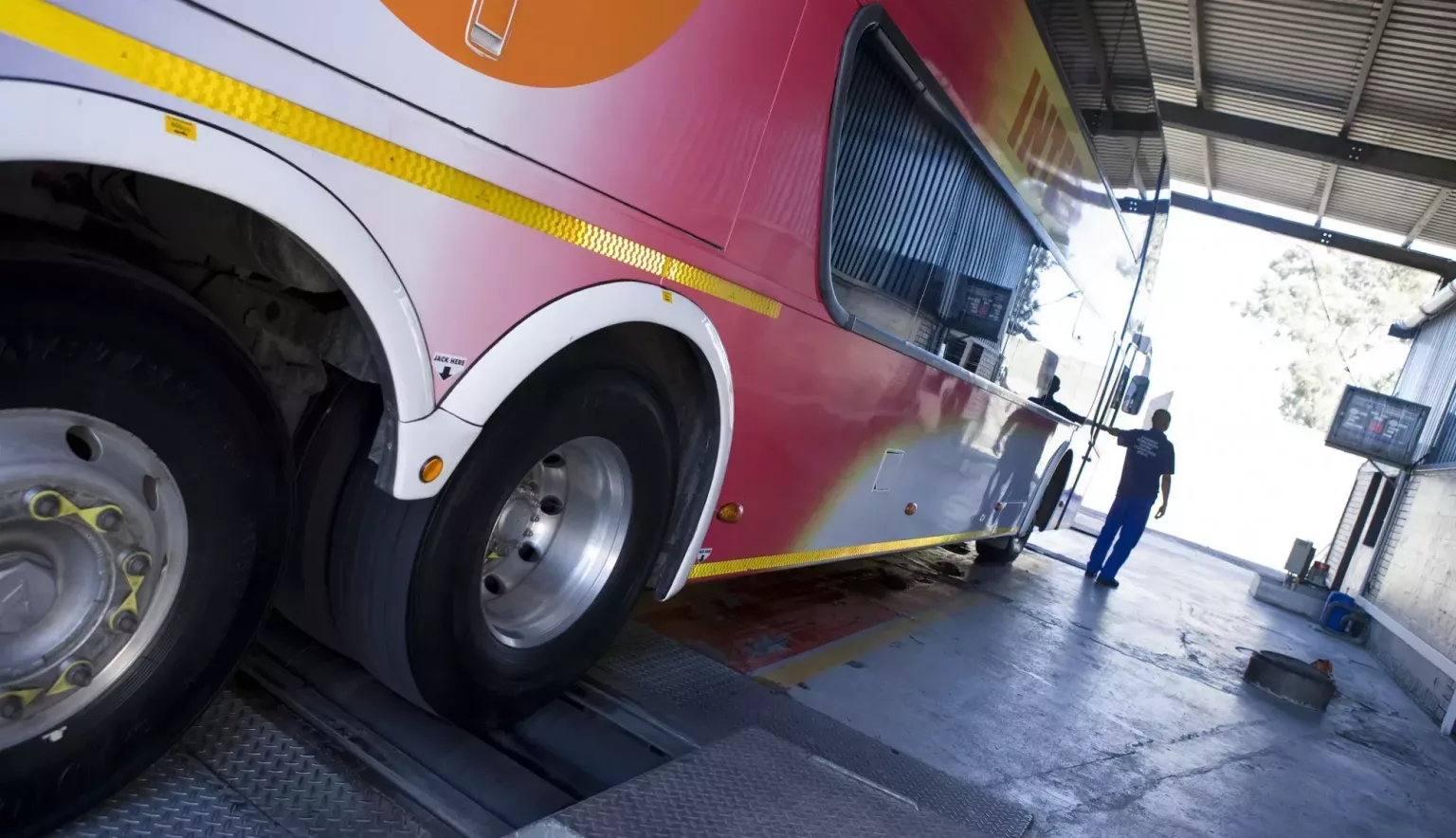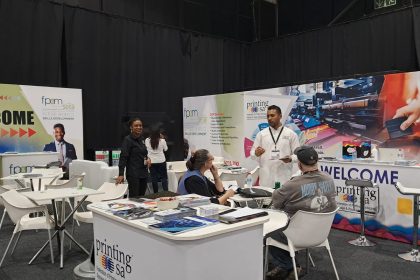Intercape sole-owner Johann Ferreira is a businessman who believes in ethics as the foundation of successful businesses. The place to find the best ethics, he says, is in Christian principles. Principles like treating others how you wish to be treated.
Mr Ferreira is committed to a vision of “spreading the Gospel of Jesus Christ throughout Southern Africa” – a vision fulfilled through his well-run and profitable bus service.
“We invest in safety and service, with our own training academy in Cape Town and the inter-city transport industry’s largest network of service depots and offices in South Africa,” says chief commercial officer Danie Du Toit. “We have a strong business ethic and subscribe to the Unashamedly Ethical movement. We are, of course, founded on strong Christian and biblical principles and we have a vision of spreading ‘the message of Jesus Christ’ – we don’t just want to build a company. That said, we are not exclusive; we welcome all religions, but are not ashamed of what we stand for and our principles. Treating one another with respect is obviously a biblical principle but it’s also a good principal full stop, regardless of your faith. It is very much part and parcel of the way we manage the company, the vision we have and for the calling.”
He acknowledged that the company does take some flak as a result of its bold Christian stance. “We make no secret of it and we don’t shy away from it. We do occasionally receive comments from passengers saying that they didn’t ‘expect’ it or ‘what is the deal with this?’ The answer is always the same; we’re very clear about it and we don’t try and hide it. You know if you get onto an Intercape coach you will see family friendly entertainment on board, there may be a spiritual or Christian message, and if you choose to go with us we will expose you to it as it’s ‘our calling’. We believe this makes good business and makes us a responsible company in our environment and community and the vast majority of our passengers appreciate that and come to prefer us for that very reason. While we don’t use it as a business differentiator, it is something that has served us well in terms of the ethics that we stand for and the way we do our business.”
Since Mr Ferreira brought all of the firm’s shares in 2008, it has been undergoing an evolution and earlier this year Intercape became the first in the industry in South Africa to introduce G7 luxury double-decker coaches, which include unique safety and comfort features.
Intercape was also the first inter-city transporter to establish routes in other Southern African countries and now operates in seven countries in the region: South Africa, Namibia, Botswana, Zimbabwe, Mozambique, Zambia and Malawi.
“The Sleepliner service, which was first launched in 2005, is a business class service and is based on a fleet of purpose-built coaches designed in conjunction with the Brazilian bus maker MarcoPolo specifically for our network,” says Du Toit. “The coaches are designed purely for comfort and safety.”
The seats on these double-decker buses come with “extra legroom” and foot rests, and recline to a restful 150 degrees.
“There is a full suite of on-board entertainment, air conditioning and toilet facilities etc.,” says Du Toit. “All of this is managed by a hostess who is responsible for passenger comfort and two drivers who operate on four-hour shifts, one resting while the other is driving.
“It is a very popular service.”
If the Sleepliner is the business class service, the Mainliner is Intercape’s standard luxury class. “To date, the Sleepliner has been introduced between major centres throughout South Africa, and between Cape Town and Windhoek in Namibia. All the other cross-boarder routes are the Mainliner services. There isn’t actually that big a difference between the two other than the fact that Sleepliner is slightly more upmarket.”
With air travel getting more and more expensive Intercape’s services have become increasingly popular, he says.
“Air travel is expensive and not as frequent into our destinations. Whilst there are quite a number of bus operators on these routes, it’s a difficult operation. You are sending a bus 2,000 kilometres away and it needs to be reliable and not breakdown so providing a safe, affordable and convenient service is essential. We’ve cracked the nut in terms of running the operation cross-border and we’ve experienced tremendous growth in the past two years.”
Safety is a top priority for Intercape, which has introduced its own speed limit.
“Safety is a very comprehensive concept,” says Du Toit. “You have to do many things right to provide a safe service. One aspect is the training of your drivers and the quality of the drivers you have. We have been operating an in-house training school since 1999, delivering fully accredited training to those who deal directly with the public. Maintenance is an important aspect of safety and we keep our fleet in top condition through an extensive preventive maintenance programme that includes a full safety check at each depot stop and a full vehicle service every 20,000 kilometres. The depots, located at all major stopover points, are equipped with full workshop facilities to carry out anything from a basic service to a full engine replacement, while major depots in Pretoria, Cape Town and Port Elizabeth put the coaches through regular full roadworthiness tests.
“Then we also have the self-imposed speed limit. The speed limit in South Africa is 120 kilometres per hour, but we have introduced a 95 kilometre per hour limit on all our services, and we’ve reduced the speed limit on the mountain passes to just 40 kilometres per hour. It’s a decision we made many years ago and it came at a great cost for us initially as we would be the company that arrived later than other operators, but the persistence in building our safety record and letting people know that we go slower so we can be safer has paid off. Over the years customers have come to understand that. There are examples of other operators driving recklessly or speeding and ending up in a ditch but this has led to the market understanding the need to be safe and be careful when you go on a coach. Those are disciplines we have built throughout the organisation; the fact we build the fabric of the company around safety has really paid off for us.”
It’s paying off and looking to the future Du Toit sees significant opportunities for growth. “Ultimately passengers vote with their wallets and we see this happening for us. We’re always optimistic about our chances and Africa is opening up,” he says.
And it all comes back to the fact Intercape’s unfolding ministry vision – it’s very unique.
“It has certainly given us the foundations and we do try as much as we can to improve lives and give back. We have developed the I-Foundation, an initiative which overarches our internal and community transformational goals.”
The foundation comprises three arms, I-Care, which includes several child and youth-oriented feeding and upliftment outreaches; I-Equip, which impacts marginalised people through skills training and job placement; and Intercede, an internal initiative which facilitates prayer and spiritual development.
“Reaching out and giving back to local communities is part of what we believe is important to us as a sustainable business and part of our calling as a company. The I-Foundation is the structure within which we do that,” says Du Toit.
In a continent corroded by corruption, Intercape is a breath of fresh air.
To learn more visit www.intercape.co.za

























